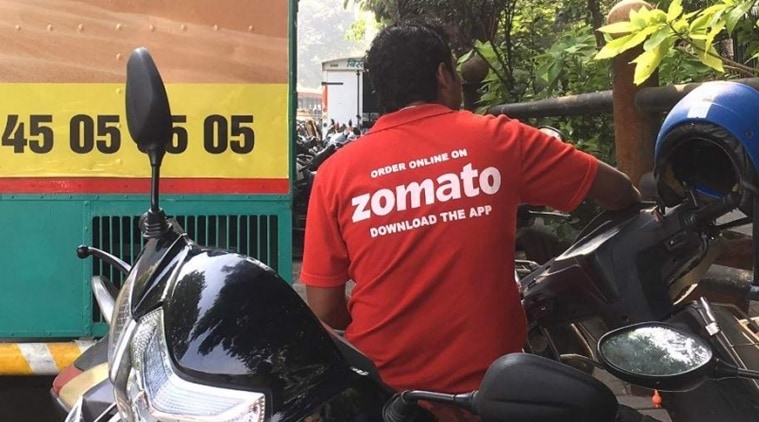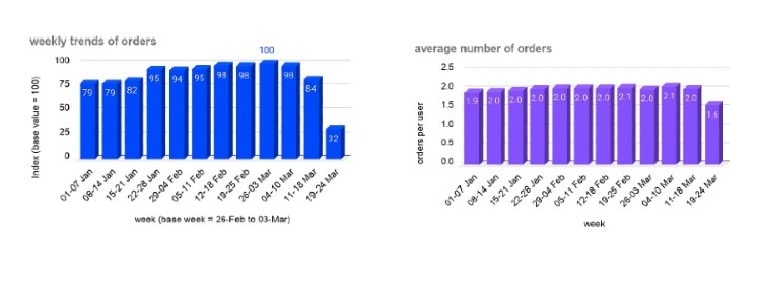 The orders plunged to “one-third” of the earlier levels in the week of March 19-25, just before the lockdown was ordered.
The orders plunged to “one-third” of the earlier levels in the week of March 19-25, just before the lockdown was ordered.
Though among the few services running in the country right now, the coronavirus pandemic has had a negative impact on the online food delivery business. Early trends indicate both Zomato and Swiggy saw a drop in orders, even before the all India lockdown came into effect on March 25.
Data analytics firm Vumonic has shown that while January and February saw the food delivery business continue to witness its natural growth, the first signs of trouble began in early March. The first two weeks of March saw orders plateauing, and the week of March 11 made it clear that the decline had started.
The orders plunged to “one-third” of the earlier levels in the week of March 19-25, just before the lockdown was ordered. This drop in numbers also coincides with growing awareness of the disease in India, given many offices were starting to implement social distancing norms and work from home policies even before the official lockdown.
The charts show that if 100 was the base value earlier for orders, the number of orders had dropped to 32 by the week of March 19-25, the week before this number stood at 84. The orders per user were also down to 1.6, according to the charts, compared to the earlier average of two orders per user.
 Weekly trends of orders.
Weekly trends of orders.
Vumonic’s data also showed that across city tiers and service providers too, the drop for orders was similar. But tier-1 cities had a little less drop and Swiggy appeared to be performing better.
Zomato and Swiggy have not yet responded to our request for comments on the same.
India went into a total lockdown from March 25 to control the spread of the coronavirus pandemic, and Vumonic’s data is based on the early trends. The company is pulling this data from Instaclean, its productivity app, which helps users keep their email inboxes clean. The app has close to 500,000+ downloads on Google Play Store.
Vumonic’s founder Gabriel Appleton said: “Given there is more proliferation and penetration in Tier 1 in general, the decrease would have been relatively less because of the supply side. More restaurants are likely to remain open on average in Tier 1 cities compared to those in Tier 2, 3 cities. Plus Tier 2 and Tier 3 are also the ones that were later to pick up Swiggy and Zomato, so logically, they will be the first ones to let it go.”
The COVID-19 lockdown has also seen both Zomato and Swiggy pivot to delivering daily groceries and essentials for customers. The highly infectious nature of the virus also means people are likely wary of ordering food from outside and sticking with home-cooked meals.
Express Tech is now on Telegram. Click here to join our channel (@expresstechnology) and stay updated with the latest tech news
Appleton also thinks this could be an opportunity for many businesses to adapt their logistics infrastructure. “The food deliveries system will adapt. We are already seeing partnerships between Uber, Rapido and players like BigBasket, Big Bazaar. I think the systems will likely evolve, which could be a big opportunity to add value to the India market,” he said.
While he cautions that the numbers only give an early trend, there’s no doubt that the lockdown and pandemic have impacted the online food delivery business and will likely continue to do so.